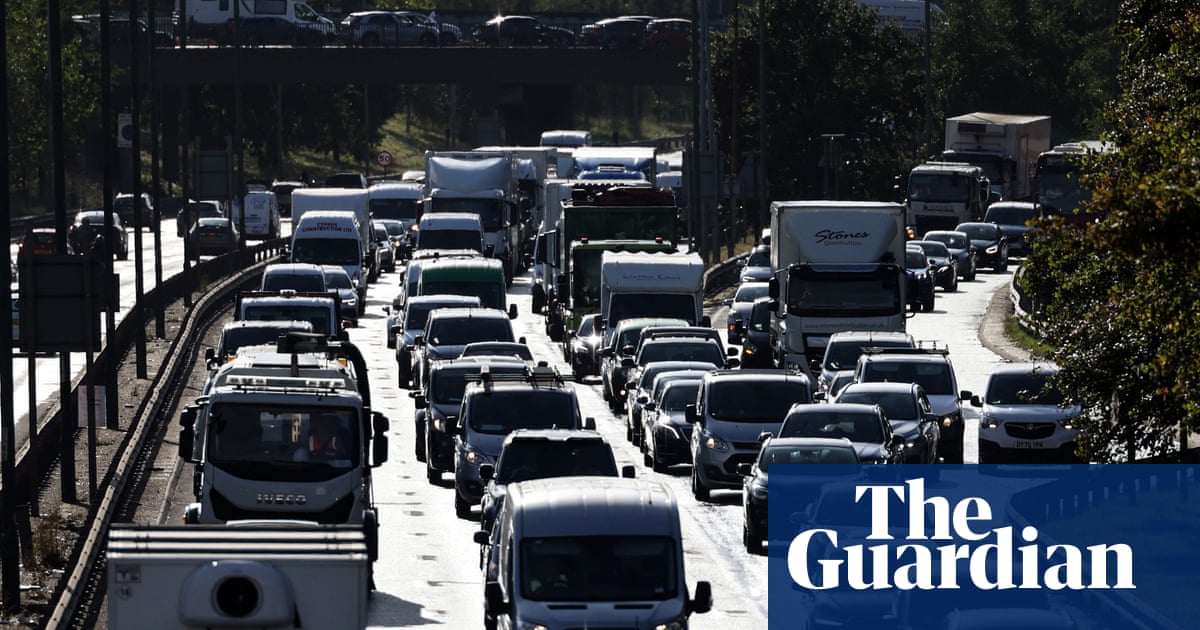
Boris Johnson’s plan to “level up” the UK will require a similar scale of funding to the near-£2tn reunification of Germany after the fall of the Berlin Wall, a leading thinktank has said.
Centre for Cities said the schemes outlined so far by the government were a “drop in the ocean” and that closing the north-south divide would cost hundreds of billions of pounds over decades if done properly.
In a stark analysis shared with the Guardian, the non-partisan research group said England’s biggest cities, including Birmingham, Manchester and Leeds, have the lowest productivity and life expectancy in western Europe.
In Madrid, the average person can expect to live nearly a decade longer than someone in Glasgow or Liverpool, where life expectancy is four years below the European average. People in Manchester, Newcastle and Birmingham live on average two years less than those on the continent, the figures show.
Paul Swinney, the policy director of Centre for Cities, said: “We’ve had this north-south divide for at least 85 years now. It’s a huge challenge [to address].”
Levelling up has been a keystone of Johnson’s domestic policy since his election in 2019 but there has been scant new policy to match the rhetoric. The government is expected to offer more policies in a white paper in autumn but experts have been underwhelmed by what they describe as a lack of coherence, urgency or ambition in the prime minister’s announcements so far.
Swinney said the scale of funding needed to be similar to that spent by the German government on the rehabilitation of East Germany following the fall of the Berlin Wall in November 1989. That cost is estimated to have reached €2tn (£1.7tn), met partly by a solidarity surcharge (Solidaritätszuschlag) tax on all German adults.
“At the moment we’re in the rounds of a couple of small pots of funding and some nice warm words about some places and free ports,” he said.
“The East German example gives you a peg to [assess] how far we are away from that. If we’re absolutely miles away, which we are currently, that feels uncomfortable. But if there’s something more comprehensive that gets you closer to that, then that’s pretty close to where you need to be.”
A government spokeswoman said it was investing billions of pounds to regenerate parts of Britain, including the £4.8bn levelling up fund and £2.4bn distributed to 101 areas through the towns fund.
The spokeswoman said the white paper would show how “bold new policy interventions will improve livelihoods across the country” and added: “We are taking decisive action to level up health inequalities across the country, providing extensive support to protect and improve the public’s health and wellbeing during the pandemic and beyond.”
Research has shown that the UK has higher levels of regional inequality than any other large wealthy country. Analysis by the University of Sheffield two years ago found that the UK was more inter-regionally unequal than 28 other advanced Organisation for Economic Co-operation and Development (OECD) countries. Slovakia and Ireland were the only wealthy nations with worse inequality between regions, it found.
Analysis by Centre for Cities shows all major British cities outside London at the bottom of the western European league table for productivity. In Newcastle, Sheffield, Nottingham and Glasgow, the gross value added (GVA) per head – a measure of what is generated by economic activity in an area – is almost half that in Brussels, Amsterdam and Munich.
Life expectancy in UK cities is also among the lowest in western Europe. Female life expectancy in the UK is the 17th lowest when ranked against EU countries (83.1 years), higher only than Denmark, Poland, Bulgaria and Romania. A woman in Glasgow will on average live to nearly 80, compared with 88 in Madrid and 87 in Lyon, Toulouse and Nantes.
Jo Bibby, the director of heath at the Health Foundation, said the UK’s generally poor health was holding back the country’s economic performance. Mental health issues are the biggest cause of people being out of work, she said, and are an “obvious place to start” in the levelling-up agenda. “You won’t level up the economy unless you level up health,” she added.
Henri Murison, the director of the Northern Powerhouse Partnership, the business and civic group chaired by George Osborne, urged the government to commit urgently to the rail projects HS2 and Northern Powerhouse Rail and address deep inequalities in health and education, “otherwise levelling up will be nothing more than rhetoric – not the serious economic rebalancing we were promised”.












